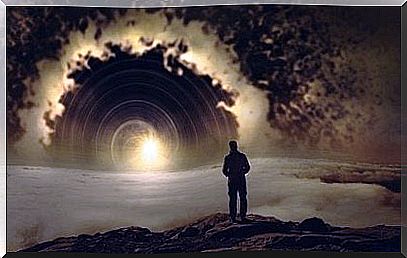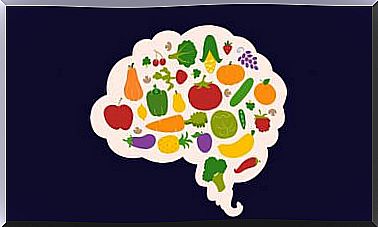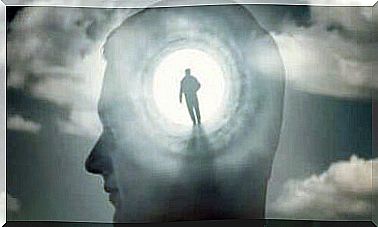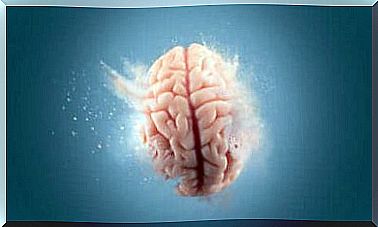The Theory Of Self-actualization: The Secret Of Human Potential

Mahatma Gandhi, Viktor Frankl and Nelson Mandela are clear examples of the theory of self-actualization. According to this approach, each one of us must decode what is inside us and give it form, fight for it at all costs. It is an intentional, responsible and creative growth, in which we don’t give up until we become what we want.
Abraham Maslow said in 1943 that a musician cannot do anything other than music. An artist must paint and a writer must write if he wants to be happy. As stated by the father of the pyramid of human needs, each person has certain aspirations and their own potential in their being. Opposing him or not encouraging him leads to frustration.
At the same time, one aspect that we must consider is the difficulty in pursuing this goal. Whether we like it or not, harmonizing personal goals with real occupations is not always possible. What’s more, sometimes we also don’t have the opportunity to demonstrate our full potential, nor to dedicate our lives to what we always dreamed of.
It is, therefore, a complex topic. However, on this path to self-fulfillment, discipline, hope and determination are essential nutrients. Assuming that it will not be an easy path is another component that we need to accept, as did some figures like the ones mentioned above.
What’s more, Viktor Frankl himself stated that self-actualization is not a goal, but a constant path in which we learn to be someone better every day, bringing us closer to our best version.

What does the theory of self-actualization consist of?
The theory of self-actualization is derived from humanistic psychology. Within this current, one of the most important figures was, without a doubt, Abraham Maslow, who indicated the following aspects:
- Self-fulfillment is being able to reach our highest needs, be it social status, affective aspirations, achievement of goals, etc.
- It is also having defined the meaning of life for us and making it our own, dedicating our daily lives to this ideal.
- At the same time, there is an essential aspect about the theory of self-actualization: it is about making what is already inside us grow. In other words, if we don’t have the skills to be scientists, it’s no use dreaming of being the new Stephen Hawking. Everyone must be aware of their capabilities and their potentials.
- Carl Rogers, another relevant figure within humanistic psychology, stated that it is about finding a balance between the real and the ideal self.
On the other hand, an interesting detail about this approach is the following. Maslow argued that we are “programmed to self-actualize”. There is a very powerful need in us to achieve this heightened balance between what we are and what we can do. However, society itself often does not facilitate this state.

Key Points of Self-Actualization Theory
If we look closely at Abraham Maslow’s classic theory of human needs, we might come to believe that this ascent to the top (self-actualization) follows a linear process. That is, we first need to feel physically secure. Afterwards, we must satisfy the needs of affiliation, then the needs of belonging and love, of social status and, later, we would reach the “top”.
However, studies such as the one carried out by Wild Whitellman, from the University of Atlanta, indicate the firm need to reinterpret the theory of self-actualization. To reach this state, we can therefore rely on the following dimensions:
Self-actualization is not a linear process
Both Viktor Frankl and Mandela and Gandhi spent a lot of time with their security needs threatened. The first rung of Maslow’s pyramid was not being satisfied, yet they were still focused every day on their self-actualization.
- Gandhi used civil disobedience to achieve freedom for his people. Viktor Frankl remained steadfast in his sense of life, even though he was in Auschwitz and Dachau. Mandela did not give up on his fight even though he was in prison.
- In other words, when someone is firm in their values, loneliness, the absence of a job or a roof do not matter.
be constant, be creative
The self-actualization theory reminds us that there is an intrinsic force in us that guides us to a goal. If someone is a musician, he cannot give up his passion even dedicating his life to another profession. This need will always be present and we must be constant in our efforts.
The use of creativity, finding other paths or even creating them ourselves are bridges with which one can go from frustration to personal peak.

Self-actualization is within you, listen to it
Psychologist and philosopher Mihály Csíkszentmihályi also points out that self-actualization is innate in us. That potential will emerge little by little. However, it is necessary to listen to it and concentrate every day on shaping it.
In this way, those who aspire to help others will be happy in jobs such as nursing, social services, psychology and even teaching. There are many scenarios in which it is possible to harmonize goals and occupations. And when we do, when we are immersed in these tasks, we truly discover what happiness is.









